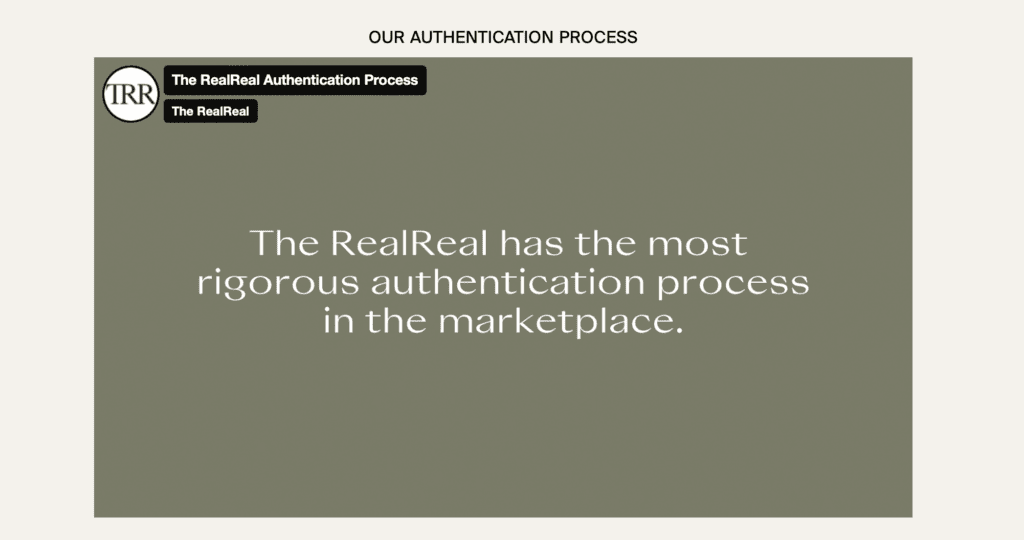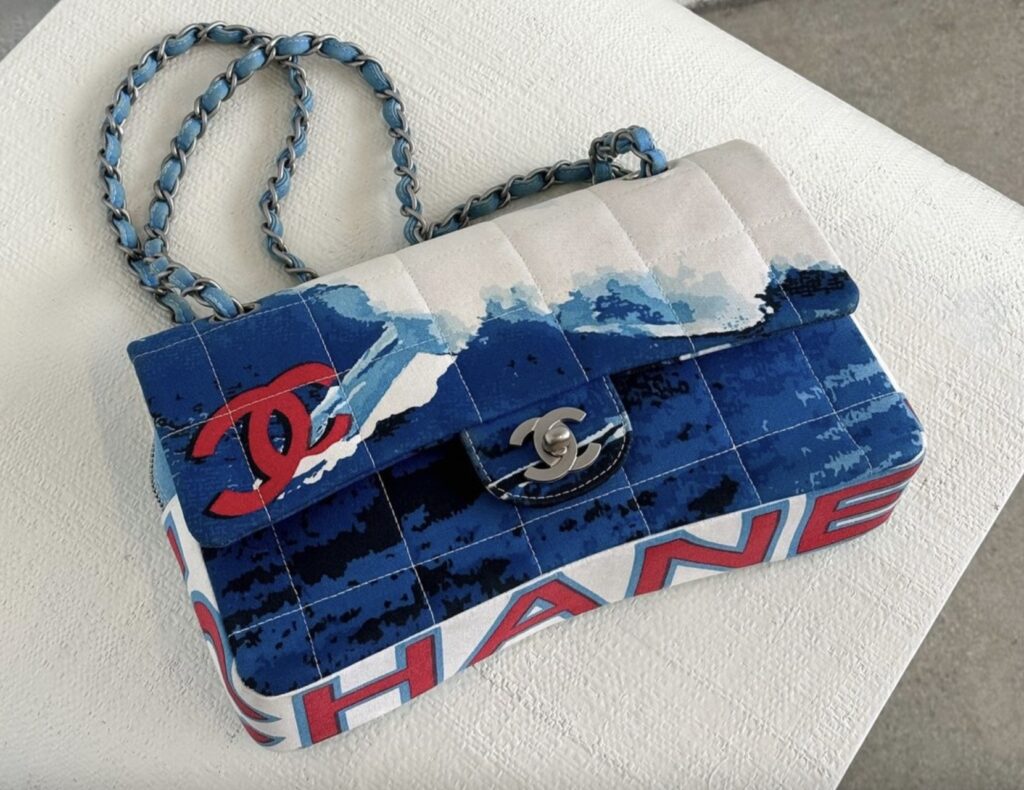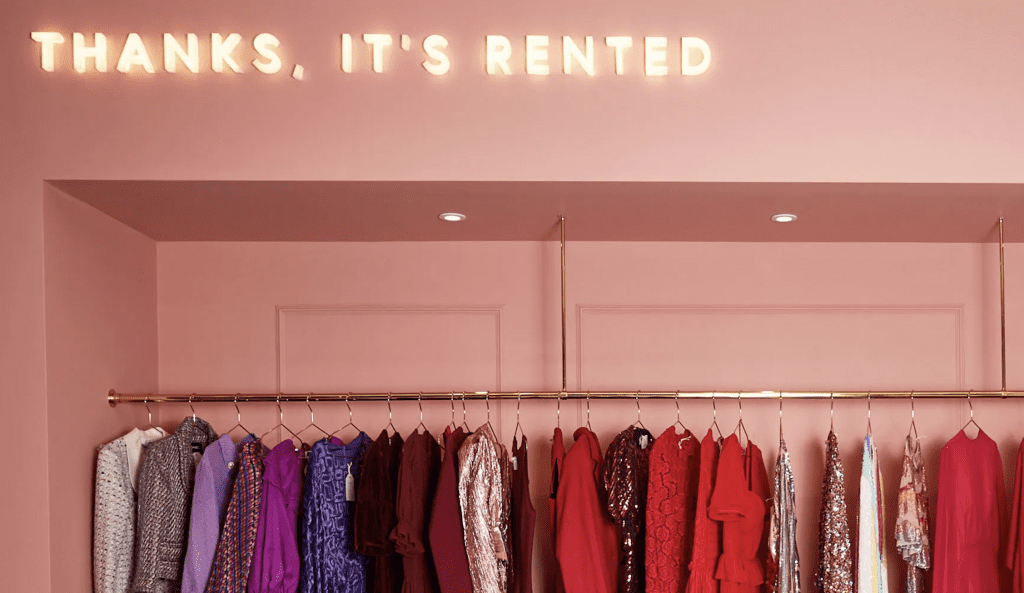As Chanel and What Comes Around Goes Around (“WGACA”) await a New York federal court’s decision in Chanel’s post-trial push for equitable remedies, including an injunction to block the luxury good resale company from unlawfully using its trademarks and confusing customers looking to purchase second hand Chanel goods, the potential impacts of the case may loom large for the secondary market. The long-running case brings to the forefront critical questions about authentication and advertising in the quickly-growing space, and could potentially reshape how resale companies do business, including by impacting their relationship with the luxury brands whose goods they sell and how they might go about marketing pre-owned luxury products to consumers.
The February jury verdict in the case that Chanel waged against WGACA garnered headlines, with a New York federal jury finding WGACA liable for willful trademark infringement, counterfeiting, and false advertising based on its unauthorized use of the brand’s trademarks, including in marketing, on non-genuine and counterfeit products. The verdict cost WGACA $4 million in statutory damages, and regardless of whether the court orders WGACA to hand over its profits to Chanel and/or orders the reseller to permanently refrain from “unfairly competing” with Chanel, another cost is clear: resale companies like WGACA, The RealReal, etc. will need to reevaluate their internal procedures and marketing strategies.

Additionally, companies in the business of luxury resale will also need to pay close attention to their authentication methods if they want to avoid the liability related to the marketing and sale of counterfeit or otherwise infringing products. And while these reassessments may simply end up being a cost of doing business as far as liability and operations go, these issues and what might come next for the ever-growing luxury resale market is worthy of close attention.
Advertising, Internal Procedures & Fair Use
The case that pits Chanel against WGACA, as well as others like it, emphasizes the power that brands wield in cracking down on alleged trademark infringements, especially going forward. “As the Chanel case shows, resellers and consigners cannot trade off brands’ reputation or [co-opt] branded advertisements [as their] own,” Jeffrey Greene, a partner at Foley and Lardner LLP tells TFL, noting that the outcome in the Chanel v. WGACA case may increase “brands’ power to prosecute alleged copyright and trademark infringement.” Power balance aside, he states that any clarity regarding the protection of brands and how to avoid consumer confusion is a good thing: “If anything, this case demonstrates that resellers – of any size and in any location – are not necessarily immune from liability.”
Case in point, at the heart of the Chanel lawsuit is its argument that WGACA’s advertisements implied that it approved of – or was in some way affiliated with – the company’s resale efforts and thus, WGACA infringed its trademarks in the process. Against that background and in light of the favorable jury verdict for Chanel, a pivotal question comes to light over how WGACA and others can mitigate future legal issues with regard to their use of the names and other trademarks of the luxury brands whose wares they are offering up.
Greene highlighted the possibility for brands to sidestep liability based on how they are referring to the underlying brands at issue and the authenticity of the goods at play. Generally speaking, “Resellers should avoid, wherever possible, any suggestion that their goods are affiliated with, endorsed by, or approved by the original brand owner,” he said. And any claims regarding the “authenticity” of products should be described very narrowly.
Additionally, Greene states that nominative fair use could be a viable defense in the future, provided a reseller defendant uses no more of the plaintiff’s trademark(s) than necessary. “What if, instead of using Chanel’s distinctive branding, WGACA had simply referred to the fact that it sold Chanel’s goods?,” Greene posited. “The key for resellers here is to balance effective advertising with legal constraints.”

Relatedly, resellers likely need to develop stringent internal procedures for reviewing advertisements that make use of third-party trademarks. A cautious approach like this could prevent unauthorized associations with brands, “unless or until” explicit permission is granted. Resellers need to “be more diligent” when it comes to the marketing materials they put in front of consumers,” and an essential part of this, according to Greene. is “fostering better communications between their marketing and legal teams.”
Authentication Challenges & the Cost of Doing Business
As the WGACA case highlights, resellers need to have robust authentication processes in place, especially since companies in this space gain a significant advantage in the eyes of consumers if they are able to market their products as the real thing. But with brands keeping the information about how to determine whether products bearing their trademarks are, in fact, genuine close to their chests and generally not providing resellers with access to it, how can stringent authentication work? Agreements between brands and resellers could facilitate resource-sharing to ensure product authenticity, Laura Ganoza, a partner and litigation lawyer with Foley & Lardner LLP, tells TFL.
However, authentication in this manner remains a brand-by-brand practice. “There have been partnerships in the past,” she said, and in an agreement-based scenario, “there would have to be some sharing of resources to figure out if products are genuine or not.” But while some brands may team up with resellers (Vestiaire’s tie-ups with Gucci, Chloé, Courrèges, etc. come to mind) in order to limit the availability of counterfeits on resale sites, these partnerships are not without risks for brands, including on the trade secret front.
As Anthony Lupo, a fashion law attorney at ArentFox Schiff, pointed out, there has long been a vexing question of how exactly to provide third parties, such as resale companies, with access to the proprietary and confidential information necessary for authentication, and at the same time, protect that information from getting into the hands of bad actors.
“If you have a legitimate party that wants to be in the business of authenticating luxury goods to ensure that they are real, they say ‘you’ve got to tell me what you’re doing so we can do the right thing [when it comes to the process of authentication],” according to Lupo. The problem with that, he claims, is that when brands share such information with resellers, they have given away trade secret information, which will undoubtedly “get out … including to counterfeiters, who are very good and diligent about really trying to dissect what brands’ protective measures are so they can pass off their goods as legitimate.”
At a certain point, Lupo says that resale companies may just need to start looking at the issue of authentication in combination with appropriate company procedures and advertising practices – along with the occasional counterfeit liability lawsuit that slips through those nets – as a cost of doing business. “That’s the price that resellers get sued for,” he says. “But hopefully they’ve done a good enough job with authenticating the majority of products that this is just the cost of doing business.”
“These businesses, the industry itself, it’s a risky business,” per Lupo. “There’s going to be inherent risk in it. The question is, can you put in enough safeguards internally where you can stand behind them, enough to feel comfortable that you’re able to take some of the risk?”
Brand-Operated Resale?
The recent developments in Chanel’s case against WGACA could lead to a future where more brands opt to enter into the resale market, themselves. A growing number of brands, such as Rolex, have created their own resale ecosystems, which allows customers to buy and sell pre-owned goods within a brand-controlled environment, Ganoza points out. This approach could provide a model for others to follow, and also give consumers a reliable alternative to unauthorized resellers. Additionally, these types of scenarios can create brand loyalty – and generate additional revenue for brands – by attracting consumers who aspire to own brand-new items eventually, starting with authentic pre-owned goods, she said.
Brand-operated resale markets would also appeal to younger, environmentally conscious consumers – a demographic that is in the crosshairs of companies looking to attract a new generation to their products. The fashion industry’s sustainability controversies could make pre-owned goods and resale markets an attractive in-house option, Ganoza said, as purchasing pre-owned items can reduce environmental impact and better align a company with the growing consumer demand for sustainable fashion.
Sustainability issues aside, Greene remains skeptical about an influx of brands in the secondary market, noting that not only do resale operations require “considerable time and expense,” but the price points at play may serve to dilute the luxury image that brands are looking to portray. In the end, it is an idea that could bring one of Chanel’s underlying issues with WGACA full circle,” he says. Offering up pre-owned products at prices that are significantly lower than their original retail price – as is very common in the resale segment – “could ruin the ‘luxury’ image of the brand.”











